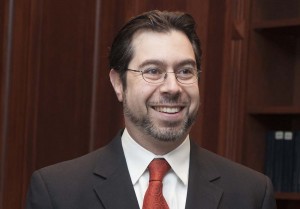The U.S. Treasury Department has issued several rules recently aimed at cracking down on tax evasion and money laundering. Just last week, it announced initiatives directed at combating practices used by “corrupt officials, tax cheats, and other criminals” in the wake of the release of the confidential documents known as the “Panama Papers.”
Will continuing to add new — and increasingly aggressive — rules make any lasting or concrete changes to the American tax code? Maybe, but perhaps at a significant cost to the tax law as a whole, says a tax expert in the School of Law at Washington University in St. Louis.

“Rather than throw away the entire regime to attack the abuse, Treasury can, and should, enact regulations directly targeted at the perceived abuse within the framework of the existing rules,” said Adam Rosenzweig, professor of law.
The goal should be to find a way to permit the Treasury Department to implement and administer a workable, real-world tax system while maintaining some core sense of identity in what the Internal Revenue Code is and should be, Rosenzweig said.
This approach will likely prove more easily said than done, he said.
“The political pressure to act against unpopular or aggressive tax strategies will always exist, and may at times become overwhelming,” Rosenzweig said. “For example, recently a number of calls have arisen for Treasury to crack down on the treatment of so-called ‘carried interest’ through administrative action in the face of lack of Congressional action.”
The carried interest tax loophole allows managers of private equity and hedge funds to pay a substantially lower federal tax rate on much of their income.
The proposal receiving the most attention, he said, is a call for President Barack Obama to close the carried interest tax loophole completely, without the approval of Congress.
“While a complete repeal would likely prevent the perceived abuse, it would also throw the entire question of the treatment of profits interests in partnerships into confusion after more than 20 years of settled law,” Rosenzweig said.
Years ago, Congress granted the Treasury Department the power to prevent the use of partnerships to convert ordinary income into long-term capital gains, eligible for lower rates, through the use of so-called “straddle” transactions, Rosenzweig said.
“All Treasury needs to do is to exercise this power to define carried interest as a straddle under these existing rules, and carried interest would no longer be eligible for beneficial long-term capital gains tax rates,” Rosenzweig said. “Is this as good as fundamentally changing the treatment of profits interests in partnerships?
“Perhaps not to some, but it would allow Treasury to achieve most of the goals stated by the opponents to carried interest while also maintaining the integrity of the overall tax system,” he said.
“While it is crucial to the survival of the income tax regime for Treasury and the IRS to keep up with the newest and most complex abusive tax transactions, ultimately the goal should be to do so in way that doesn’t also lose sight of the overall structure and goals of the income tax regime itself,” Rosenzweig said.
Comments and respectful dialogue are encouraged, but content will be moderated. Please, no personal attacks, obscenity or profanity, selling of commercial products, or endorsements of political candidates or positions. We reserve the right to remove any inappropriate comments. We also cannot address individual medical concerns or provide medical advice in this forum.